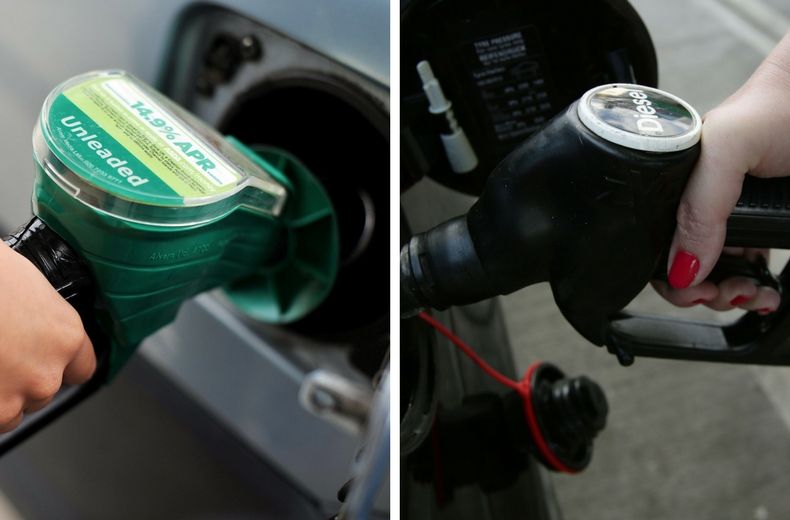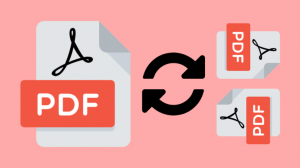If you’re looking to sell your car without the hassle of a dealership, consider online sales. This method lets you control the entire process, from ad creation to paperwork and payment.
You can also reach a larger audience than selling in person or through newspaper classifieds. However, there are still some precautions to take.
- List Your Car at the Right Time
A car sale can be stressful, but it doesn’t have to be. With engaging listing and safe communication with buyers, you can sell your car quickly and at a fair price. Whether selling to a private buyer, a dealership, or an instant offer service like Carvana, you can succeed by following these tips.
First, ensure you’re in the right frame to sell your car. If you’re not emotionally attached to it, you’ll be able to negotiate a better price with potential buyers. You should also be clear about your intentions for the car – are you trying to turn it into cash, buy another vehicle, or replace it with something newer? These details can help you determine who your target market is and how much to ask for the vehicle.
Before you list your car, clean it thoroughly inside and out. This will give you a great first impression and make it more appealing to buyers. You should also have a mechanic check it for any issues you can’t fix before listing it. This will help reassure potential buyers that the vehicle is in good condition and reduce the chance of a scam.
It’s also a good idea to list your car on multiple websites so that you can attract a variety of interested parties. However, be sure to keep in mind how much time and effort it will take to manage all the different ads. Additionally, don’t post the same information on more than one website – this can confuse prospective buyers and may detract from your sales potential.
When negotiating the price of your vehicle, be firm but polite. If you go in too hard, the dealer may be unwilling to compromise. If you go in too soft, they may think you’re a pushover and ignore your offers.
Once you’ve found a prospective buyer, be sure to vet them carefully before agreeing to meet for a test drive or other transaction. This includes finding out how they’ll pay for the vehicle and asking them to show proof of insurance and registration before allowing them to drive off with your car. Ideally, you should plan to meet your buyers in a public place with ample parking space to protect yourself against scams.
- Be Prepared to Meet Strangers
Selling your car online can be a great way to reach a large audience and avoid the haggling that can occur with dealerships. However, it’s important to be prepared for the fact that you will likely have to meet strangers in person to complete the sale. This can be dangerous, so it’s important to take precautions. Meeting buyers in a safe public place and bringing a friend is one of the best ways to protect yourself. You should also be prepared to answer potential buyers’ questions.
Ultimately, selling your car online can be a great way for you to get top dollar for your vehicle and eliminate the hassle of dealing with car dealers. Just be sure to follow these tips to ensure you have a smooth, successful transaction.
Online car shoppers are more interested in seeing multiple photos of a vehicle than they were in the past. Make sure to take several high-quality photos of the interior and exterior of your vehicle, focusing on key features that will be appealing to buyers. When taking photos, be sure to use natural lighting and choose a spot that is free of distractions (such as an empty parking lot). You should also be ready to answer potential buyers’ questions. For example, if you’re selling your SUV, you may be asked about the cargo space and whether it has any recent upgrades.
Most people who sell their cars online will want to have a mechanic look at the vehicle before finalizing a deal. You can help ease buyers’ concerns by obtaining a pre-sale inspection from a trusted source and listing it in the car’s description. Buyers who see this information can feel more confident that they’re getting a good deal.
You should always be wary of any offers that seem too good to be true. Scammers are constantly coming up with new schemes to take advantage of unsuspecting sellers, so it’s important to be vigilant. If something feels off, trust your instincts, and walk away from the sale.
- Be Wary of Scams
The internet makes it easier to sell a car, but it also provides scammers with more opportunities to steal your vehicle or information. You should be very wary of buyers who want to purchase your vehicle without taking a look at it first or if they ask you for personal information like bank account numbers, social security numbers, PayPal information, credit card information, and car maintenance records. These kinds of requests are often a sign that the buyer is not interested in buying your car but is rather trying to steal it or gain access to your personal information for other fraudulent purposes.
If you can, try to sell your car through word of mouth or to people that you trust instead of strangers. It is always easier to feel safe and secure when dealing with close friends or family members, and it can make the entire process much less stressful and risky. However, if you must use classified ads to sell your car, try to keep all of your communications on the platform that you’re using so that you can monitor and protect your personal information online.
Another way to be wary of scams is to never meet with prospective buyers outside your home or in a private location where you could easily be cornered or robbed. Instead, try to arrange meetings in public places where there are lots of people around, such as a park or shopping center. If possible, try to meet in a place that has video surveillance so you can make sure the person is who they say they are.
In many cases, scams work because the victim is eager to close a deal they think is sweet, so remember to take your time and be cautious every step. Also, never accept a check or money order for more than the amount you’re asking for because this is another common scam where the buyer is paying a third party to “ship” your car or cover their commission.
While it’s impractical to run a background check on everyone who responds to your classified ad, try to at least speak with potential buyers over the phone before agreeing to meet. This can help you spot a lot of swindlers who hide behind bogus email accounts or text messages that provide no details about their identity.
- Don’t Be Afraid to Walk Away
Selling your car through an auction can save you cash compared to taking a trade-in or selling to a dealership. But it can also come with risks. Here are some tips to help you sell your car safely and for a good price.
Before you start fielding inquiries about your vehicle, research its value using reputable online guides like Kelley Blue Book. This information can help you decide on an asking price when drafting an ad or negotiating with prospective buyers. It can also help you determine if your vehicle has any hidden features that could be valuable to certain potential buyers and thus influence their bidding behavior.
You should also gather other documentation that can help you justify your asking price to prospective buyers, including maintenance and repair records and the original sales paperwork. You may even want to consider springing for a Vehicle History Report or VIN check, which can be an extra reassurance that your vehicle is a safe and reliable one.
It’s important to screen every prospective buyer who calls or responds to your ad or even visits your car in person. If someone gives you a red flag, don’t ignore it. There are scammers out there who can be very convincing. Some will tell you they’re interested in buying your car, but they have other plans for the money you’ll give them, like shipping it overseas or converting it into an RV.
Finally, once you’ve agreed on the terms of the sale, get everything in writing. If the transaction goes south (as it sometimes does), you have documentation to fall back on. It’s always safer to meet with a buyer in a public location during the daytime and to recommend that they bring a driver’s license and proof of auto insurance.
Although it’s a bit of a hassle to spend time on all of this, you can use the tools at your disposal to reduce your risk of being taken advantage of. By following these tips, you can have a more successful and less stressful auction experience!



